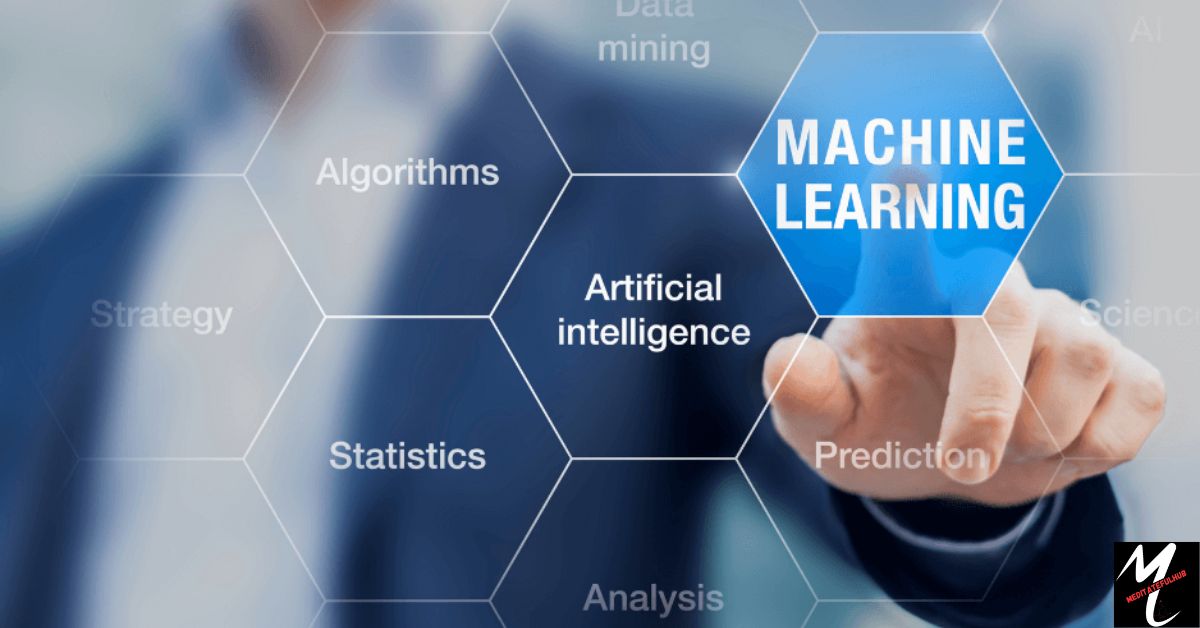Artificial intelligence and machine learning technologies are fundamentally reshaping the financial technology sector in 2024. Financial institutions face increasing pressure to process vast amounts of data, detect fraud, automate operations, and deliver personalized services – all while maintaining strict security and regulatory compliance.
These challenges are intensifying as customer expectations evolve and competition grows fiercer. The integration of AI and ML provides a powerful solution, enabling fintech companies to enhance efficiency, reduce costs, and improve customer experiences. This comprehensive guide explores the transformative impact of AI and ML across the fintech landscape, from automated trading to risk management and beyond.
The Foundation of AI-Powered Finance
Artificial intelligence and machine learning form the backbone of modern financial technology. These technologies transform how financial institutions operate, serve customers, and manage risks in 2024.
Understanding AI and ML in Financial Services
AI in finance uses computer systems to perform tasks that typically require human intelligence. Machine learning algorithms learn from data patterns to make predictions and decisions. The evolution began in the 1950s with simple rule-based systems. Today, AI powers complex financial operations across global markets. Advanced neural networks, deep learning, and natural language processing drive modern fintech innovation.
The Data Revolution in Finance
Financial institutions process millions of transactions daily through real-time analytics platforms. Modern systems analyze structured and unstructured data instantly to reveal market trends and customer behavior. Predictive models use this data to forecast market movements, assess credit risks, and detect fraudulent activities.
Core Applications of AI in Financial Services
Financial institutions implement AI solutions across multiple service areas to enhance efficiency and customer satisfaction.
Automated Customer Service Solutions
Financial institutions now deploy sophisticated chatbots that handle customer inquiries 24/7. Virtual assistants process loan applications, answer account queries, and provide investment advice. These systems understand natural language and learn from each interaction to improve their responses.
Enhanced Security and Authentication

Biometric systems now verify customer identities through fingerprints, facial recognition, and voice patterns. Multi-factor authentication adds extra security layers through device verification and behavioral analysis. Advanced encryption protects sensitive financial data during transactions.
Smart Risk Management
AI systems assess credit risks by analyzing thousands of data points in seconds. Real-time monitoring detects market anomalies and potential threats instantly. Automated compliance systems ensure adherence to financial regulations across jurisdictions.
Revolutionary Financial Technologies
Modern financial technology transforms traditional banking processes through intelligent automation.
Advanced Trading Systems
Algorithmic trading platforms execute thousands of trades per second based on market conditions. High-frequency trading systems capitalize on price differences across markets. Advanced analytics tools process market data to identify trading opportunities.
Personalized Banking Experience
Banks now offer customized financial products based on individual customer data. AI analyzes spending patterns to recommend suitable investment options. Risk profiling systems create personalized financial strategies for each customer.
Automated Process Management
Digital systems streamline workflow processes across banking operations. AI-powered document processing eliminates manual data entry. Automated transaction systems reduce processing times and errors.
Risk and Compliance Innovation
Financial institutions prioritize risk management and regulatory compliance through AI-powered solutions.
Modern Fraud Detection
AI systems monitor transactions in real-time to identify suspicious patterns. Machine learning models detect anomalies that indicate potential fraud. Pattern recognition technology prevents financial crimes before they occur.
Regulatory Compliance
Automated KYC systems verify customer identities efficiently. AI generates accurate regulatory reports on schedule. Continuous monitoring ensures compliance with changing financial regulations.
Data Privacy and Protection
Financial institutions implement GDPR-compliant data protection measures. Advanced encryption secures customer information across platforms. Privacy-preserving technologies protect sensitive financial data during processing.
AI Impact on Financial Services (2024)
| Service Area | Traditional Approach | AI-Enabled Solution | Improvement |
| Customer Service | Manual Support | 24/7 Chatbots | 70% faster response |
| Fraud Detection | Periodic Reviews | Real-time Monitoring | 90% detection rate |
| Risk Assessment | Manual Analysis | Automated Scoring | 50% more accurate |
| Trading | Manual Execution | Algorithmic Trading | Microsecond execution |
| Compliance | Manual Checks | Automated Monitoring | 99% accuracy |
Next-Generation Financial Solutions
The financial industry embraces advanced technologies to create innovative solutions for modern banking challenges.
Intelligent Credit Systems

Traditional credit scoring limits financial access for many individuals. Modern AI systems analyze alternative data sources like utility payments and rental history. These systems enable faster loan approvals and fairer credit assessment for previously underserved populations.
Investment Technologies
Robo-advisors now manage investment portfolios automatically based on individual goals. AI algorithms analyze market trends and adjust portfolios in real-time. Sentiment analysis tools scan news and social media to predict market movements and optimize investment decisions.
Cost Optimization
Banks reduce operational costs through AI-powered automation. Smart resource allocation systems maximize efficiency across departments. Streamlined processes cut transaction costs while improving service quality.
Read This Blog: How to Cancel Your Brazzers Subscription: Complete Guide [2024]
Integration with Emerging Technologies
Financial institutions combine multiple technologies to create powerful hybrid solutions.
Blockchain and AI Convergence

Smart contracts automate complex financial agreements without intermediaries. Decentralized finance platforms provide banking services through blockchain technology. AI systems optimize cryptocurrency trading strategies and risk management.
Natural Language Processing
Advanced NLP systems extract valuable information from financial documents automatically. Communication systems understand and respond to customer queries naturally. Trading algorithms analyze market sentiment from news and social media.
Dynamic Pricing and Analytics
Financial products adjust prices automatically based on market conditions. AI systems adapt to changing market dynamics instantly. Competitive analysis tools track market trends and competitor pricing.
Also Read: How to Cancel Your Fitness 19 Membership: The Complete Guide (2024)
Future Trends and Innovations
The financial sector continues to evolve with groundbreaking technological advances.
Emerging Technologies
Quantum computing promises to revolutionize financial calculations by 2025. Edge computing brings faster processing to local banking operations. Advanced AI models improve decision-making accuracy across financial services.
Industry Evolution
Market analysts predict 80% of banking interactions will use AI by 2026. New technologies emerge to address cybersecurity and privacy challenges. The industry faces growing pressure to balance innovation with regulation.
Implementation Challenges and Solutions
Financial institutions must overcome various obstacles when adopting AI technologies.
Technical Considerations
Legacy system integration requires careful planning and expertise. New systems must work seamlessly with existing banking infrastructure. Cloud computing solutions help manage growing computational demands.
Business Impact
AI implementation costs typically return investment within two years. Organizations measure success through improved efficiency and customer satisfaction. Strategic planning ensures successful technology adoption.
AI Implementation ROI in Banking (2024)
| Area | Initial Investment | Annual Savings | ROI Timeline |
| Customer Service | $1M | $2.5M | 5 months |
| Fraud Detection | $2M | $4M | 6 months |
| Process Automation | $1.5M | $3M | 6 months |
| Risk Management | $3M | $5M | 7 months |
FAQ
What is the role of AI in modern banking?
AI automates banking operations and provides personalized customer services while enhancing security and risk management.
How does machine learning improve financial security?
Machine learning detects fraud patterns in real-time and strengthens authentication through behavioral analysis.
What are the benefits of AI-powered financial services?
AI reduces costs, improves customer experience, and enables faster, more accurate financial decisions.
How is AI transforming investment strategies?
AI analyzes market data, optimizes portfolios automatically, and predicts market trends for better returns.
What are the main challenges in implementing AI in finance?
Key challenges include integration with legacy systems, regulatory compliance, and high initial implementation costs.
Conclusion
Artificial intelligence and machine learning continue to revolutionize the fintech industry in 2024. These technologies enable financial institutions to provide better services, enhance security, and reduce costs. As the sector evolves, organizations that embrace AI-driven innovation will lead the future of finance.
Remash is a dedicated tech enthusiast and writer for Meditatefulhub.com. With a passion for exploring the latest in technology, Remash brings insightful articles and reviews to help readers stay informed in the ever-evolving tech landscape.








![How to Cancel Your Brazzers Subscription Complete Guide [2024]](https://meditatefulhub.com/wp-content/uploads/2024/11/How-to-Cancel-Your-Brazzers-Subscription-Complete-Guide-2024-300x157.jpg)


